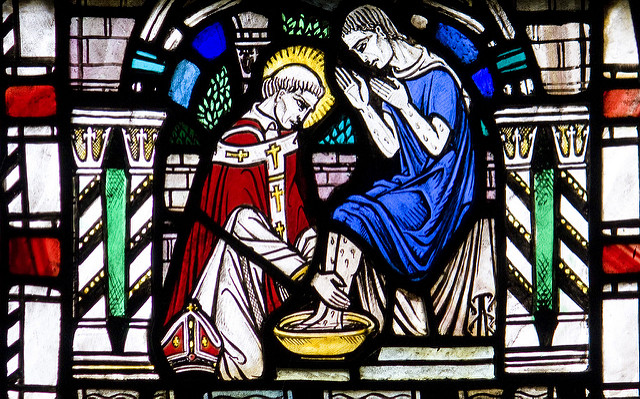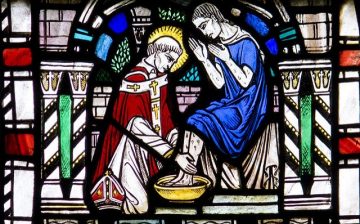On LDS.org, the lesson prompt for Sister Marriott’s talk, Abiding in God and Repairing the Breach states,
“This message can help members who may feel separated from Heavenly Father or from those around them. What would help those you teach understand what a breach is? Maybe you could bring pictures of different kinds of breaches. How does Sister Marriott define breach? What can cause breaches in our relationships with God and others? Invite members to search Sister Marriott’s message for suggestions about what we can do to repair breaches in our lives. Give members time to write down what the Spirit prompts them to do to draw closer to God and others.”
For this lesson, I’m going to pull out quotes from the talk that I really liked and connect them with a scripture story or church leader quote with some questions.
Lasting Matters
“Sisters, what matters to you? What is lasting to you? A matter of lasting value to the Father is that we learn of Him, humble ourselves, and grow in obedience to Him through earthly experiences. He wants us to change our selfishness into service, our fears into faith. These lasting matters can test us to our core.”
This quote reminds me of the story of the rich young man in Mar
k 10:
Then Jesus beholding him loved him, and said unto him, One thing thou lackest: go thy way, sell whatsoever thou hast, and give to the poor, and thou shalt have treasure in heaven: and come, take up the cross, and follow me.
And he was sad at that saying, and went away grieved: for he had great possessions.
In this story, the young rich man is asked to “turn his selfishness into service” and his “fears into faith” but he cannot. Have there been times in which you’ve had to use faith over fear? Serve over selfishness?
Personal Agendas
Sacrifice of our personal agendas is required to make room for the eternal plans of God. The Savior, who speaks for the Father, pleads with us, “Draw near unto me and I will draw near unto you.”
I think one of the prime scriptural examples of this is Saul, who became Paul by forsaking his previous agenda of discouraging people from following Christ to being a missionary for the gospel. Another wonderful example is that of Mary, who probably had no plans to become of the mother of the savior, but accepts the plan that God has for her.
What personal agendas do we have that get in the way of God’s plans? How do we become humble enough to put those aside?

Healing Relationships
Near the end of her talk Sister Marriott shares a story about repairing a relationship that had been broken over political differences. I recommend reading it all with the class, but to save space, I’ll quote only the end here,
Over time the gap between us sweetly closed. But even if she had not accepted my changed heart, I had learned that Heavenly Father will help us love even those we may think are unlovable, if we plead for His aid.
I wanted to pick this quote out because it reminded me of a time when I went to apologize and repair a relationship with a family member. After my apology, I was met with the comment, “It’s about time.” It hurt to feel like my humility was returned with bitterness, but that is also not something I could control. Sometimes we need to apologize even if we won’t receive forgiveness.
As far as a scripture-based story, the story of Joseph being sold into Egypt by his brothers and then many years later helping his family to get through a famine.
Related, earlier in her talk, Sister Marriott asks,
It is now, with our mortal limitations, that the Father asks us to love when loving is most difficult, to serve when serving is inconvenient, to forgive when forgiving is soul stretching. How? How will we do it?
I know with our eternal families and belief in an afterlife it can seem like we have all of eternity to work on our relationships, and in some ways we do, but that does not negate the effort we need to put in now.
How have you worked toward repairing a relationship in your life?
Sister Aileen Clyde Curtis stated in the April 1995 General Conference,
The love Christ commands requires a mighty change and great humility. It requires us to forsake pride and to be stripped of envy. It requires that we neither mock our sisters and brothers nor persecute anyone. Christ knew that for us to find any of those characteristics in ourselves would be onerous and would demand our great effort just to look. He said, “If thy hand or thy foot offend thee, cut them off, and cast them from thee” (Matt. 18:8). He was not suggesting our mutilation, but rather showing his awareness of how painful clearing ourselves of such offenses could be. When we have made the changes that only we can make, then, by the atoning blood of Christ, we may receive the forgiveness that only he can bring.
Other Lesson Plans about building and repairing relationships and humility:





